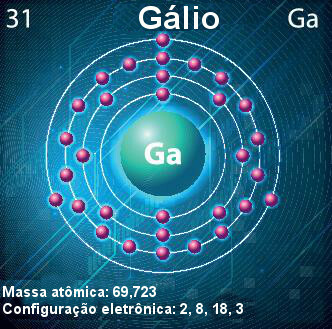The creation of the CIS in the year 1991 maintained Russia's influence in strategic decisions for the nations that formed the USSR. The economic gaps between the Soviet republics were immense, and military power was concentrated with Russia. The nuclear weapons present in other countries were being dismantled during the 1990s through disarmament treaties that were convenient to prevent the emergence of other nuclear powers or the commercialization of these weapons towards regimes hostile to the West or towards organizations terrorists. For the former Soviet republics, these agreements served to expedite obtaining loans and attracting investments from Western institutions.
After two decades since its inception, the CEI has failed to instigate any kind of development project economic and the bloc was restricted to a few trade agreements in specific areas and to the geopolitical interests of the Russia. Asian nations persisted in socioeconomic conditions of low development and some countries started to see the European Union as a much better alternative to a modernization mentality. economic.
The Baltic countries did not choose to participate in the CIS because of their greater commercial interaction with Europe. Latvia and Estonia joined the WTO (World Trade Organization) in 1999 and Lithuania in 2001. In 2004, the three countries started to participate in the European Union. At a more advanced stage of its economic development, Estonia adopted the Euro in 2011. In opposition to Russian imperialism, the three countries joined NATO (North Atlantic Treaty Organization) in 2004, it should be noted that NATO represents a military alliance conceived by the US after World War II to combat military advances of the USSR.
The former Soviet Republic of Ukraine will always be remembered for the Chernobyl nuclear accident, the biggest accident at an all-time nuclear power plant, which occurred in 1986 and reflected the technical backwardness of the time of the USSR. The displacement of the population that lived in the areas close to the plant and the containment of the explosion were poorly planned, which caused countless social and environmental damages. Not even former Soviet President Mikhail Gorbatchev knew of the incident in real time. After this nebulous episode, Ukraine is considered the most important country in the former USSR after Russia. It has one of the best agricultural soils in the world, the tchernoziom, located in the Ukrainian steppes and used for the cultivation of cereals, being one of the largest wheat producers in the world. Corn is in full expansion, the country is already the 3rd largest producer and, possibly, will surpass Argentina's production in the coming years.
The energy sector is very important, with the presence of large deposits of oil and natural gas. In the southeast of the country, in the region known as Donbass, there are the largest reserves of mineral coal and iron and steel production, sectors that form the pillar of the Ukrainian economy. The aeronautical and aerospace sectors are also noteworthy. Recently, there was a move for Ukraine to join NATO, but in 2010 the Ukrainian parliament decided by the non-integration with the western military bloc, which was defined as a political rapprochement with the Russia.
Also in the European part, Belarus (Belarus) maintains an economy linked to state planning, even if it is a nation open to capitalism and private initiative, with the predominance of heavy industry, mechanics and agriculture. Its president, Aleksandr Lukashenko, has been in power since 1994, being accused of being "the last dictator in Europe", restricting freedoms and democracy in the country, which has created tensions with the European Union, strengthening the link with the economy and politics of the country. Russia. Moldova (Moldova) is the poorest country in Europe, with external dependence on the energy and industrial sector. As the vast majority of Moldova's population is made up of Romanians, many Moldovans try to migrate to neighboring Romania, belonging to the European Union, in order to achieve European citizenship and gain the benefits of the free movement of people.
Georgia, Armenia and Azerbaijan have oil reserves, with their economies primarily focused on the primary sector. Since its independence, Georgia has sought a political distance from Russia and greater integration with the West, coming close to joining NATO in the late 2000s, going against Russian interests in the region. In 2008, Georgia was invaded by Russian troops, who supported the separatist republics of Russia. Abkhazia and South Ossetia, regions that have greater affinity with Russia and do not accept the rule of Georgia. Russia has recognized the independence of the two territories, not yet consented to by the UN, which has sought to monitor the areas in question. After the conflict, Georgia's parliament approved the country's disengagement from the CIS, which was carried out in 2009.
The possibilities of joining NATO still exist and the country has the support of the USA, which can be understood as follows: on the one hand, the United States wants expand the allied axis against Iran, as Georgia's geographic position favors the establishment of military bases or even missile launching systems and positioning of ships. On the other, and much more delicate, trying to reduce Russian influence in the Caucasus.
The Asian countries that formed the USSR (Kazakhstan, Kyrgyzstan, Uzbekistan, Tajikistan and Turkmenistan) are the most economically fragile, depending heavily on agriculture. Kazakhstan appears as an exception, due to the presence of the oil industry (the country has one of the ten largest oil reserves in the world), in addition to the rocket launching facilities and satellites. Kyrgyzstan, Uzbekistan, Tajikistan and Turkmenistan are multi-ethnic and Islamic countries, which maintain its political relations with Russia, which, in turn, does not interfere in their internal affairs. territories.
Julio César Lázaro da Silva
Brazil School Collaborator
Graduated in Geography from Universidade Estadual Paulista - UNESP
Master in Human Geography from Universidade Estadual Paulista - UNESP
Source: Brazil School - https://brasilescola.uol.com.br/geografia/leste-europeu-paises-que-formaram-urss-parte-iii.htm



